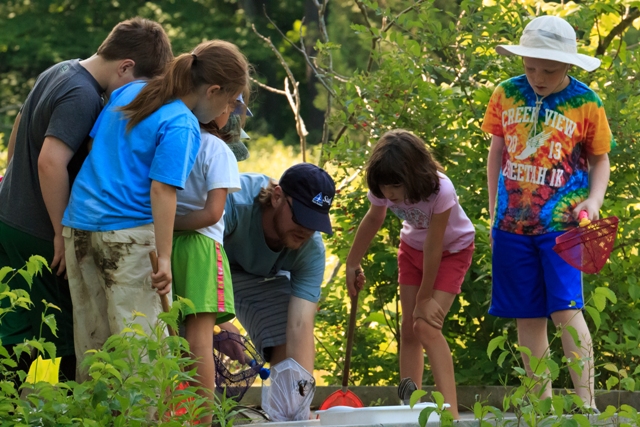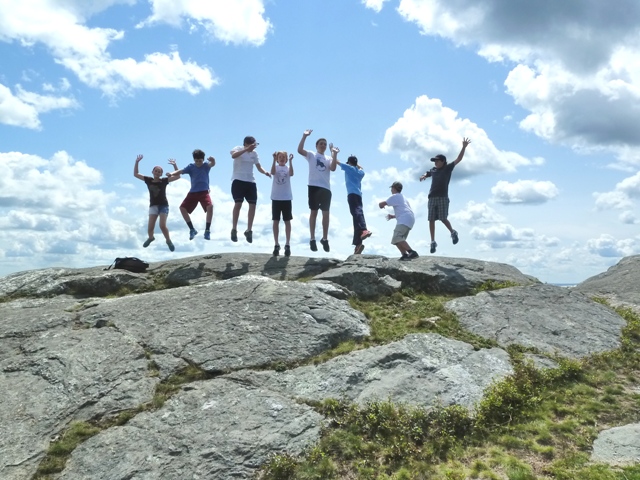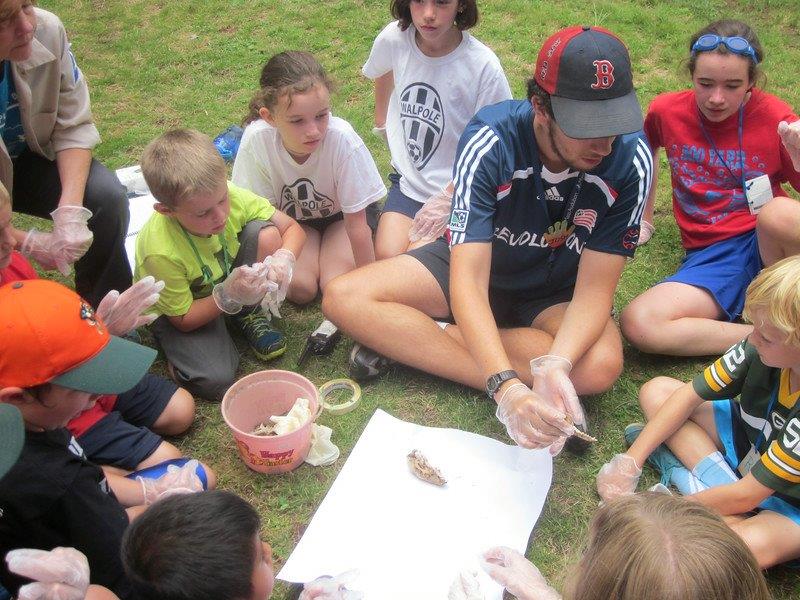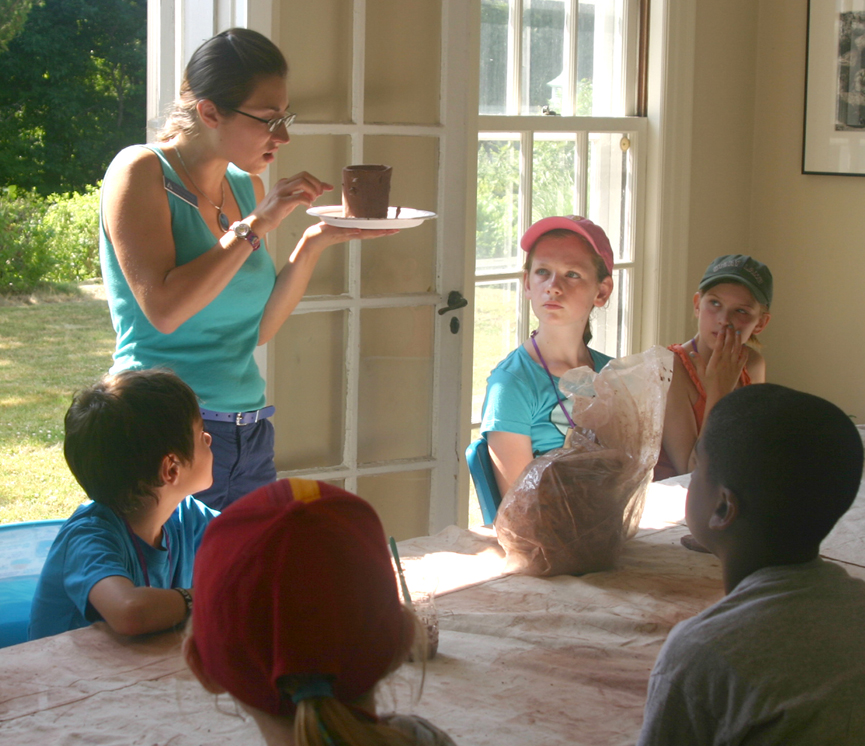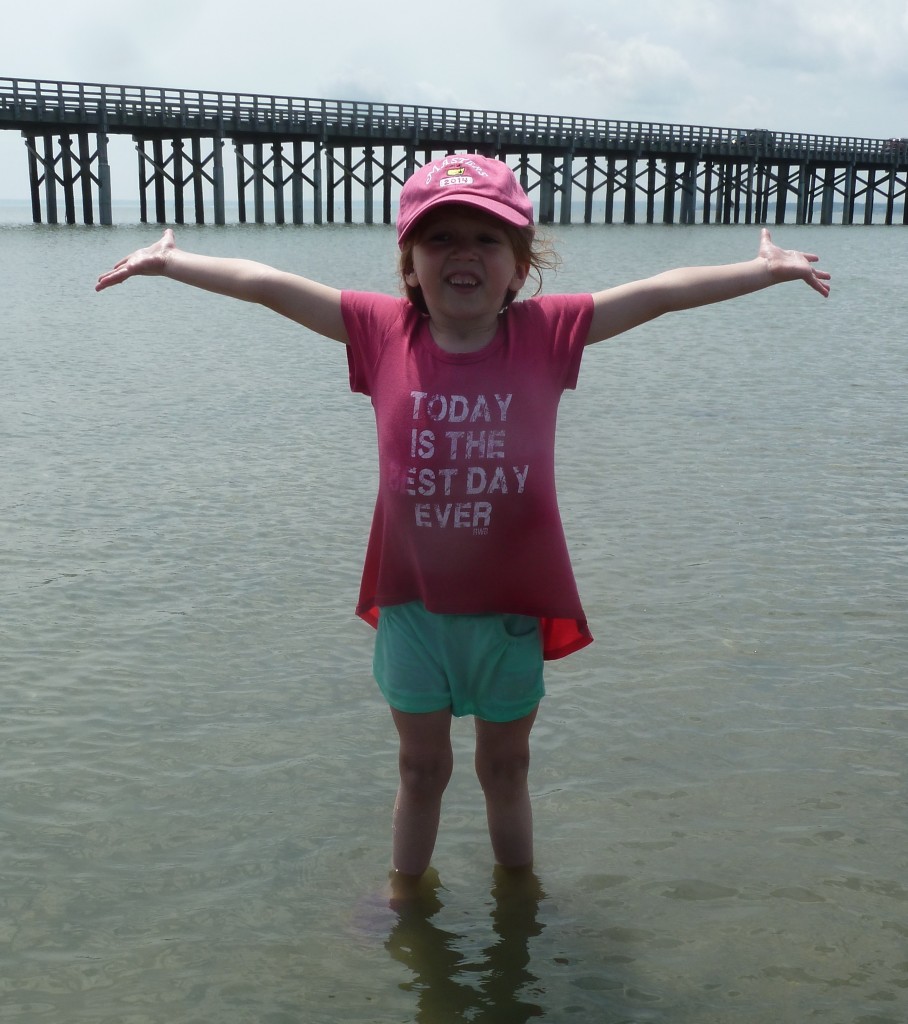At Mass Audubon camps, we celebrate the long, warm days of summer by exploring our natural surroundings, from the wooded hillsides of Lenox to the sandy beaches of Wellfleet Bay. Year after year, families tell us how happy they are to have found us because of the people they meet, the places they go, and the things they do together.
Here we share the top five reasons kids (and parents) love Mass Audubon Camps.
Our Staff
Enthusiastic, friendly, knowledgeable—these are just a few of the words used to describe our counselors. Many are environmental educators, and some have grown up with our camps. Others are students from farther afield, with a worldliness and sense of adventure that inspires campers to become informed, thoughtful stewards of nature. No matter their life pursuits, they all share a common goal of creating fun, meaningful outdoor experiences for kids.
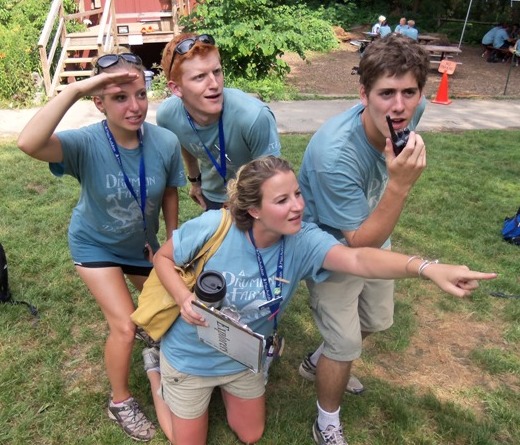
Playing Outside
“Discover, explore, be outside” is the mantra of camp since nature investigation forms the basis for many activities. Campers enjoy fresh air and space for their active bodies and leave camp filled with new knowledge about their surroundings. Life science lessons abound, and young learners are encouraged to ask questions and reconcile seemingly disparate facts about the ecosystems they visit.
Wildlife Encounters
Whether encountering a gray squirrel, watching a tiger swallowtail, or spotting a red-tailed hawk, campers brim with excitement when they observe animals up close. As campers begin to understand the creatures around them, they build a sense of place and belonging, helping them to see how they fit into the web of life.
Hands-on Activities
Experiential learning is central to all activities because it connects campers directly to what they’re studying (also, it’s fun!). Campers are free to get dirty while they learn about a range of subjects, from wilderness survival to plant identification. Moreover, they have opportunities to explore their interests and build confidence through new endeavors. By incorporating practical lessons, such as how to use a field guide or build a campfire, campers are able to become independent students of nature and continue learning on their own.
Other Campers
Last, but certainly not least, friendships are an important part of any summer camp. Our campers meet children from different backgrounds and build relationships based on mutual respect and empathy. They are able to find companions who share their interests and participate in group activities that require teamwork, strengthening interpersonal skills and making memories to last a lifetime.
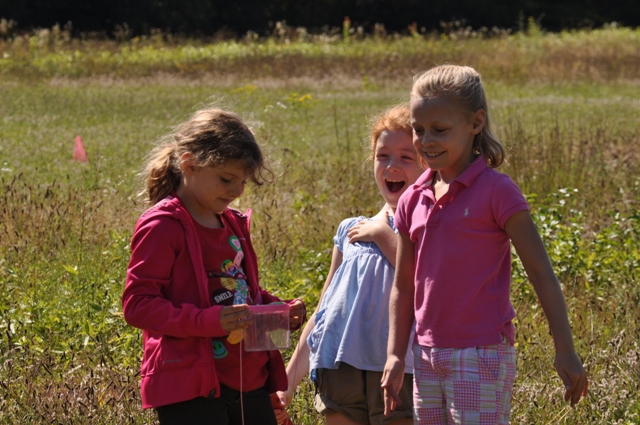
Guest Post (and previously printed in Connections) by Adrienne Lennon, Camp Director & Teacher-Naturalist at Joppa Flats Education Center in Newburyport.


